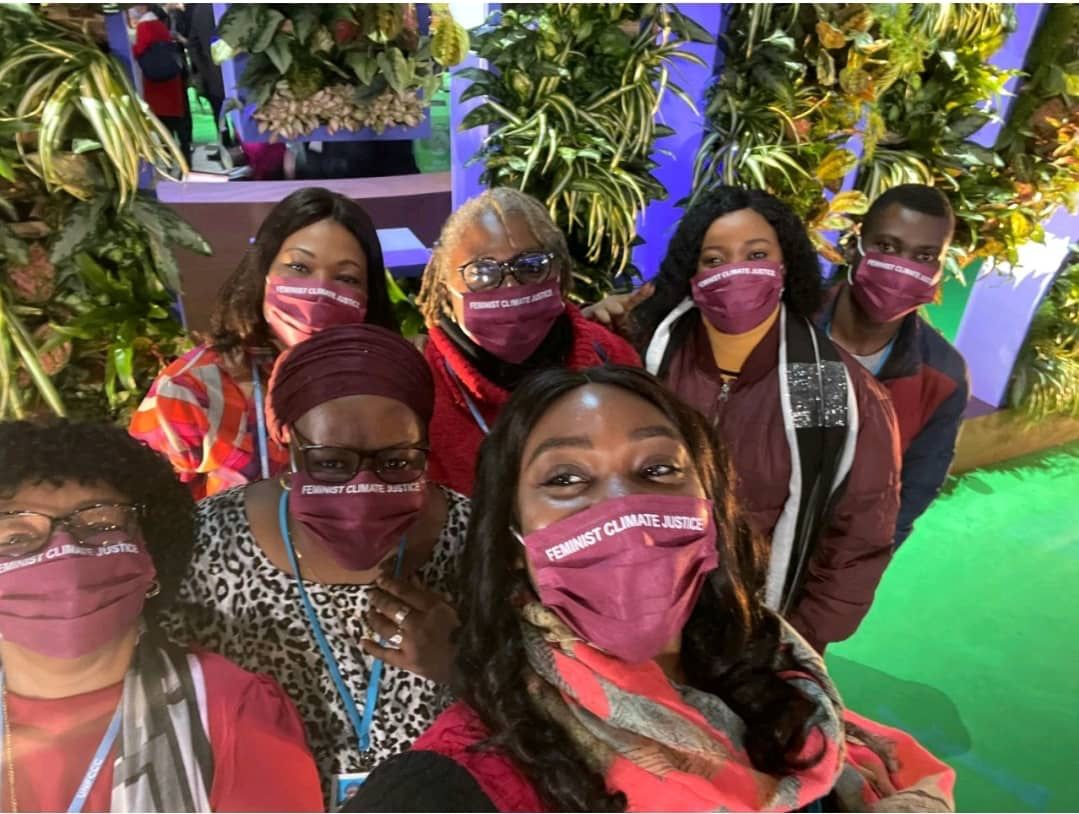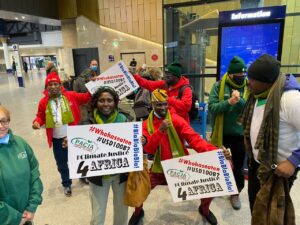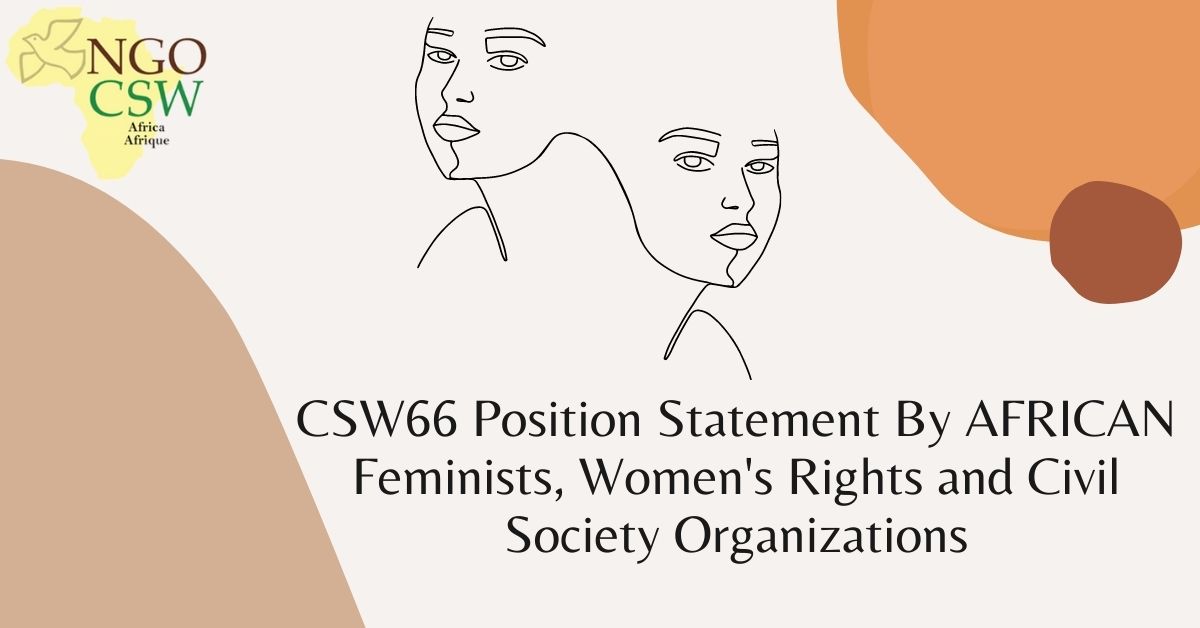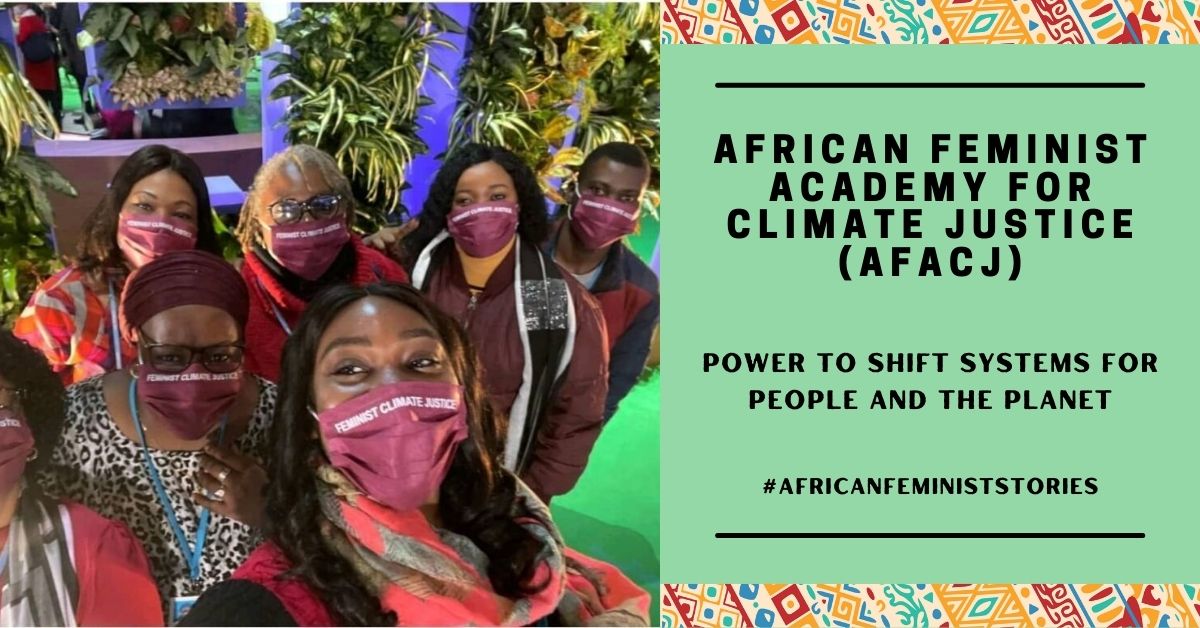
It Is Time For Climate Justice!!
For those who have been at the #COP26 they have seen colorful masks labelled ‘Feminist Climate Justice’ and I bet some of you outside COP26 you may have seen pictures on your timelines or local magazines.
The masks have become popular among many identifying as feminists, progressive governments officials and allies. Women and Gender Constituency deserve all the credit for this innovation of putting #FeministClimateJustice on the faces of climate justice activists, advocates and leaders – literally.
Understanding the centrality of gender in achieving climate justice, this years conference of parties (COP) like the previous ones, dedicated 9th of November to be ‘Gender Day’. Several events are expected to be hosted on this day and several reports will be launched. Governments, private sectors, and mainstream organizations will claim and showcase their progress or results in mainstreaming gender in climate change processes and projects.

We, Pan-African feminists speaking out for Africa’s women and girls ahead of the UN Climate Change Conference (COP26), want unequivocally inclusive climate actions on the needs and priorities of Africa’s women and girls to ensure climate justice.
I will not be surprised when most of those ‘success stories’ shared today will be stereotypical, unstainable and disempowering initiatives. Initiatives which look at women, local communities, and indigenous people as homogeneous, passive and powerless groups waiting to be rescued by patriarchal colonial capitalists.
Whitewashed gender mainstreaming commitments won’t fix our broken economic system, won’t transform unequal gender relations, and won’t end climate crisis. We know women are underrepresented in their national governance and in climate related portfolios. According to the most recent Inter-Parliamentary Union (IPU) data, ministerial portfolio held by women are 7.3% in environment, 3.8% agriculture, 3.7% STEM, 2.8% housing, 1.6% finance and planning and 1% transport. We know gender disaggregated data is outdated and not comparable; we know women have less rights to own, use and control over land; we know climate funding is not gender responsive – in fact we know finance targeted at climate action is almost non-existent. These facts and many other facts and stories that we know tells us one thing, that we need to prioritize and address systemic structural issues if we must attain both climate justice and gender equality. Thus, the need to adopt feminist climate justice agenda urgently and collectively.
Gender just climate solutions are already in communities, with women, and girls in all their diversities leading these solutions despite structural constrains. The gender just award ceremony on the 8th November 2021 was a testimony of rich and diverse innovative work done by women in communities across the world – from Guatemala to Kenya, India to Turkey. Sadly, climate finance architecture and mechanism are not designed to serve them. This need to be fixed. NOW!
Engagement, participation, and leadership of women in climate change policy processes and program is equally vital. While the 2021 gender composition report shows progress on participation, a lot of work needs to be done in attaining parity in leadership and decision-making spaces. It is notable progress that almost 35 African countries have appointed national gender focal persons, however, the remaining countries like my country Tanzania, and my host country Kenya needs to do so soon.
With gender focal person appointed, the tough work awaits – ensuring climate justice is feminist climate justice. In simpler terms, to use the words of Prof Farhana Sultana “Feminist climate justice engages with intersectionality to demonstrate how patriarchy compounds socio-ecological crisis. It avoids essentializing women or men into binary categories but looks at specificities of interlocking systems of oppression and exploitation. By offering a more complex view of gender, the varied risks, responsibilities, and rights can be accounted for”
In Africa, feminist climate justice is the much-needed vehicle that will promote and secure inclusive and sustainable development for people and the planet. The need and aspirations of African people to secure dignified life, free from colonial oppression and unsustainable extraction and plundering of natural resources, can only be attained when a transformative and system wide approach (feminist climate justice) is at the center of our analysis, planning, designing and execution of development plans and climate actions.
It is my hope that this year’s Gender Day (9th November), will mark an important step towards feminist climate justice. In fact may this day next year, be called as such “Feminist Climate Justice Day’!
Mwanahamisi (Mishy) Singano is FEMNET’s Head of Programmes and coordinates the climate justice and natural resource governance strategic programming. She can be reach on email m.singano@femnet.or.ke and twitter @MSalimu
Related Posts
CSW66 Position Statement By AFRICAN Feminists, Women’s Rights and Civil Society Organizations
Acknowledging that Africa is the most vulnerable continent to climate change despite having contributed the least in creating
Learn MoreThe African Feminist Academy for Climate Justice (AFACJ)
The 6th Intergovernmental Panel on Climate Change (IPCC) report released in 2021 is nothing less than a code
Learn More

